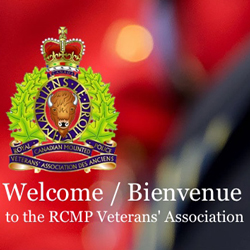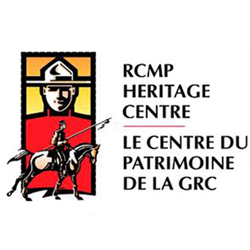Ric Hall’s Commissioner’s Annual Reports: 1885 to 1886
Veteran Ric Hall has undertaken an effort to review the early North West Mounted Police Annual Reports to the Canadian government.
In so doing, he has provided some of the notable details below for your reading pleasure.
Commissioner Irvine’s Annual Report of 1885 details much about the North West Rebellion and he also reports on the following:
Barracks – Buildings, etc. – “Notwithstanding the accession of 500 additional men to the force, no provision has, as yet, been made for their accommodation, with the exception of one large room built for prison purposes, which was subsequently converted into a barrack room. At Regina the barrack rooms have been crowded – so much so as to effect the men’s health – and it has been necessary to send recruits away to outposts before they were properly trained. Half of the Quartermaster’s store is now full of men, to the great inconvenience of prejudice of the Quartermaster’s department.
The riding school at Regina has been commenced, but work is discontinued during the severe weather. It is not probable that it will be ready for use before June next.”
Clothing – “On the one hand, the red coat, from long association, has the confidence of the Indians, and conduces to the smartness and soldierly appearance of the men. On the other hand, a red coat soon loses its colour amid the dust and dirt of prairie travel. I see no necessity for an alteration in the tunic, which is used on full dress parades, etc., but consider that a working suit of some stout material is very desirable.”
Helmets and Gauntlets – “It is an object to do away with pipeclay (a plastic, unctuous clay of a grayish white color, – used in cleansing soldiers’ equipments – “Morning after morning, at the dawn inspection, the Sergeant would find a speck of mud on Marriott’s pipeclay.” – “As a soldier learns more in a week of war than in years of parades and pipeclay.”). It was for this reason that I recommended last year, the adoption of brown leather gauntlets, such as are worn by mounted infantry of the Imperial service, in place of the white ones which we are now equipped. The same remarks apply to the helmet, future issues of which, should be of buff or brown leather. It would better also, if they were not so tall as the present pattern, which presents an unnecessary surface to the wind on the prairie, and is thereby rendered very uncomfortable to the wearer.”
Horses – “I am of opinion that the establishment of horses for each division should be 100. Including the charges of three officers, this admits of mounting only fifty-seven non-commissioned officers and men, leaving forty horses, vix., ten four-horse teams. The horses that have been sent hither from the east during the past year have stood the work as well as could be expected. It is well known that eastern horses are not available for much work during the first year of their arrival in this country. Experience has shown that they require a year or thereabouts to become acclimatized, and that during that time they should be put to moderate work only.”
Louis Riel – “On the 16th November last Louis Riel was executed within the precincts of the gaol here. The body was subsequently handed over to Mr. Bonneau, by order of the sheriff. Unfounded and malicious reports were circulated, after the execution, that the body had been mutilated and to disprove this rumour, the coffin was opened and the body examined in presence of myself, Mr. Bonneau and other persons, before it was allowed to leave the barracks.”
Commissioner Herchmer’s Annual Report for 1886 comments on:
“All the force have now been supplied with Enfield revolvers, which are is eminently adapted for our use, and all have Winchester carbines. This weapon appears to be well suited to our requirement, but needs a good many improvements, deficiencies existing in the sighting of many of these carbines, and they are too weak in the stock.” It seems that issue of how to carry the carbine on horseback still persists! “The present system of carrying the carbine on the horn of the saddle, while perfectly suitable for patrolling, is not adapted for close ranks, several plans are now on trial.”
“During the last year it was deemed expedient to increase the Force in a very limited period, from 500 to 1,000 men and consequently many men were admitted who were neither suited by character or ability to perform the onerous and responsible duties of their new positions. It has since been found necessary to invalid some of these men who were passed by medical examiners in eastern Canada; and a good many others were men accustomed to lead idle lives around towns, this class finding that the discipline enforced prevented them from following their natural inclinations, have, in many cases deserted; and, owing to the great facilities furnished by the enormous extent of the country, have in many instances, have effected their escape, but many have been recaptured; and the majority, after undergoing their imprisonment, have turned out very well indeed.”
“The men we want are farmers’ sons, with good common school educations, and a proportion of the better class on discharged short service men from the Imperial service. Of these two classes our best men are generally composed, although, we have a number of young good family and education, many of whom after short service, in which they get accustomed to the work, are all that can be desired; but it is the farmers’ sons raised in the Dominion, that I should like to look for the majority of our recruits; this class of recruits all understand the care of horses, and are accustomed to hard outdoor work, to the climate and to taking care of themselves in any situation, but, unfortunately, the short term of five years does not permit us to keep these trained men a sufficient time in the service; the best and smartest generally, after one period decline to reengage, as there is nothing to look forward to…….This can only be remedied by a system of pensions, which if carefully administered, would retain in the force a large percentage of our best men, whose example would be everything to our recruits. Such a system, I had the honor to submit to your consideration and the trifling expense incurred would be many times over repaid in the efficiency of the Force, which only requires the prospects of such reward for long and meritorious service to secure and retain the services of the best men in the Dominion.”
Physique of Force – “The physique of the force is very fine and improving all the time, the trouble being to get clothing large enough; but now that our clothing is generally made in Canada with proper size rolls there should be no difficulty in guarding against this mistake.”
Desertions – “Most of the desertions during the past year were men who had not completed a year’s service, many of them but a few months, and, with very few exceptions, were men of wandering disposition, who would not be content in any sphere of life. As a rule desertions take place during the first year of service, and the seeming large number during the past year is due to the late hurried increase in the strength of the Force, when many men of a class were engaged who, otherwise, would not have been accepted.”
General State of Force – “It has been my aim, since my appointment, to keep the Divisions in the west in every way ready for any emergency that may arise. All the Divisions are now well horsed, armed and equipped, and each is at its full strength, and generally all ranks are well up in their work; and if unfortunately they are called upon at any time to face the Indians, I have no doubt they will be found quite equal to the occasion.”


 March 3, 2015
March 3, 2015 












